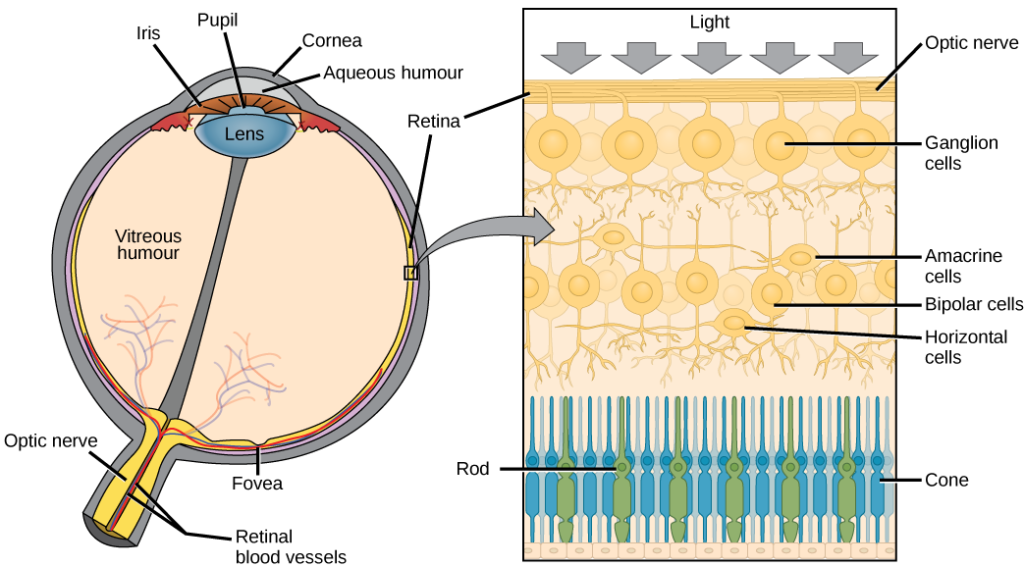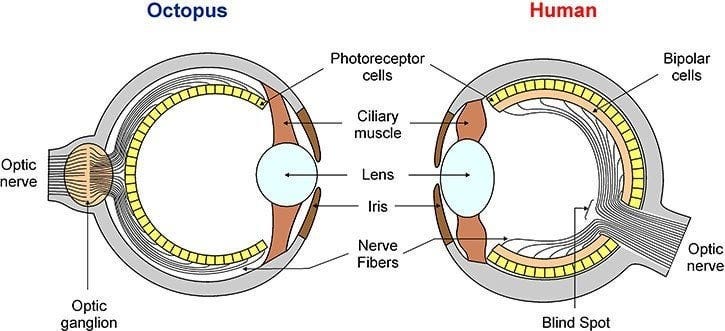Agile: The Blind Watchmaker?
Prediction Vs. Adaptation
You may be surprised to learn that I have a Bachelor in Biology and a Master in Functional Genomics. I never did anything with either of them. I am obsessed with nature and have read many books on evolution. I believe that understanding evolution will help you better understand Agile.
Richard Dawkins wrote a beautiful book called The Blind Watchmaker, in which he talks about evolution as a blind watchmaker:
“Natural selection is the blind watchmaker, blind because it does not see ahead, does not plan consequences, has no purpose in view. Yet the living results of natural selection overwhelmingly impress us with the appearance of design as if by a master watchmaker, impress us with the illusion of design and planning.” - Richard Dawkins
There’s a lot to unpack here. Let’s make it more concrete by considering the human eye. If you were to study how the human eye works, you might get the impression that someone designed it this way because all the different parts that make vision possible seem to fit neatly together. Much like a watchmaker who designs and builds a watch, you may get the impression something or someone is responsible for the design of the human eye.
But here’s the hitch: evolution can’t look ahead and it can’t design anything. If there’s a watchmaker, it’s a blind watchmaker. Evolution doesn’t create organisms with deliberate planning and thought, even if it may duly appear so. There is no designer behind evolution, except for perhaps the laws of the universe that made evolution possible.
Any gene that increases its chances of survival will propagate. Survival isn’t random, and the genes that better improve the chances of survival will be genes that conferred advantages in the past. They may also work better in the future, but we can’t know the future. What will happen is unknown, much like dinosaurs couldn’t foresee a meteorite hitting the earth and causing their extinction.
All we know is that if these adaptations don’t work better in the future, too, then they will tend to disappear. Survival is based on what happens in the past. There’s no cheating and looking ahead going on. The rocks are shaped by the water that has passed through.
We can show that evolution doesn’t design solutions by closely examining the human eye:
As magnificent as the human eye is, it suffers from two evident design defects that could easily prevented if there was a maker behind them:
The presence of a blind spot. Where the optic nerve crosses the retina, there are no rods or cones and we’re unable to see in this area.
The unnecessary blocking of light. The optic nerve, together with ganglia, amacrine, bipolar, and horizontal cells, runs in front of the retina, reducing the amount of light that can reach the retina. Another way of phrasing it: the electric cables responsible for transporting the signal of the light detection sensor run in front of the light detection sensor.
These are not significant problems, but a human designer could easily prevent them. If the human eye were a product built by humans, we would have fixed these mistakes by now.
Let’s consider the octopus eye in comparison to the human eye:
Octopus eyes have:
No blind spot.
Nerve endings run behind the retina so they cannot block incoming light instead of in front.
Why did octopus eyes do a better job in these two specific areas?
The deeper you go in the ocean, the less light arrives there. Deep underwater optimizing for receiving as much light as possible is far more critical than on land. This is also why the most enormous eyes in the animal kingdom can be found in the ocean's depths. The giant squid and the colossal squid have eyes the size of a football, capable of detecting the glimmers of sperm whales before they strike. That’s necessary due to the depths at which they live.
And here’s the beauty of it all: our brain has evolved to predict and simulate, yet the way they work wasn’t the result of any prediction and design. Is your mind blown yet? 🤯
However, like the human eye, our brain suffers from many imperfections. If you want to learn more about them, read Daniel Kahneman's book Thinking, Fast and Slow. As imperfect as our brain is with its biases and flaws, we can look at the human eye and see what could be changed for the better. Evolution can’t do that.
By now, you might be thinking, this is a lot of talk about eyes, evolution and octopi. What does this have to do with Agile?
Here’s the kicker: if all these complex things have evolved without designing, predicting, analyzing, and looking ahead, why are we always worried so much about getting everything right from the start?
Mistakes are at the basis of evolution. If our DNA were copied perfectly, there would be no natural variation for natural selection.
Without mistakes, there’s no progress.
Be less worried about preventing mistakes. Be more concerned about not learning from your mistakes.
The more we try to prevent sucking at predicting, the more we will guarantee to suck at adapting.
The more we plan, predict, and try to look ahead, the more difficult it is to learn from our mistakes. We will discover our mistakes much later, when it’s much more difficult to fix them.
Agile is about learning, not pretending you know everything there is to know. If you don’t need to learn and adapt, then you don’t need Agile.
How can we evolve the best solution while simultaneously benefiting from our ability to predict and plan ahead?
Too little looking ahead will mean we will work ineffectively and not discover the best solution. Too much looking ahead will produce precisely the same pattern, but boy, does the illusion of control make us feel good!
You won’t get it right first, so worry about keeping your options open in a way that you can get it right later.
Is Agile a blind watchmaker? Absolutely not.
However, we should work in a way that we can better benefit from the qualities of a blind watchmaker and adapt to the circumstances as we discover them, instead of trying to pretend we can predict all circumstances.






"There is no designer behind evolution, except for perhaps the laws of the universe that made evolution possible." of course every law requires a lawmaker ;) As usual your mind produces many interesting and complex thoughts. I appreciate the main point of keeping options open so that we get to the right solution. That is an unfailing truth.
As usual, insightful content that's worth reading. Thanks a lot Marteen. I always welcome your articles in my mailbox